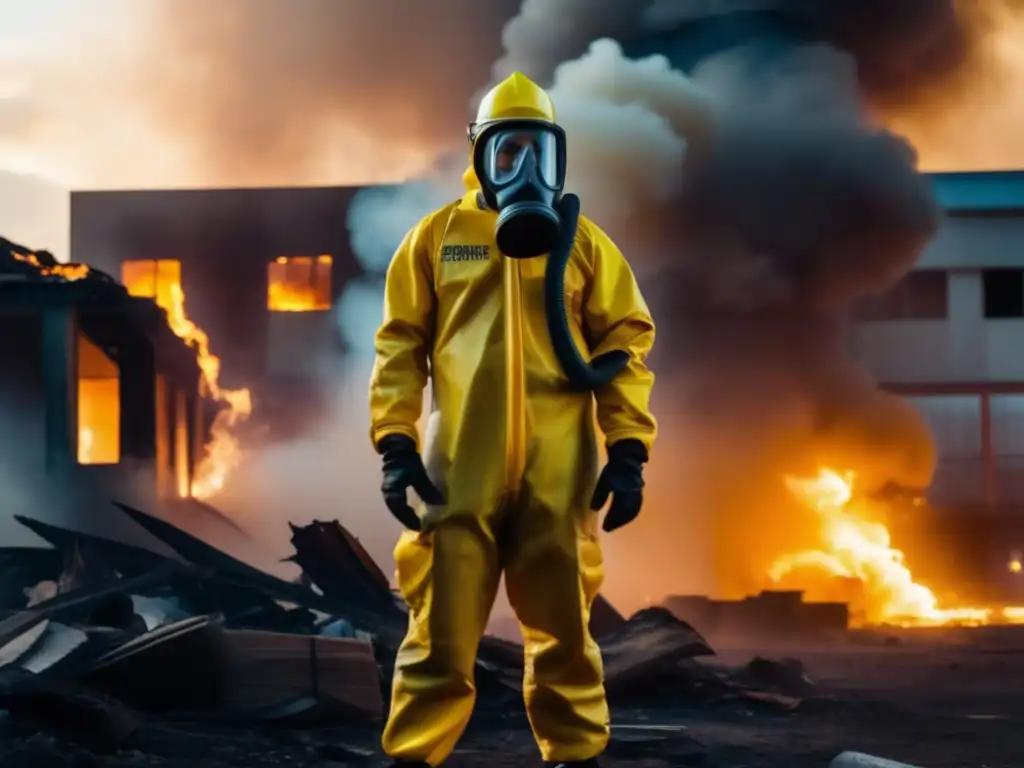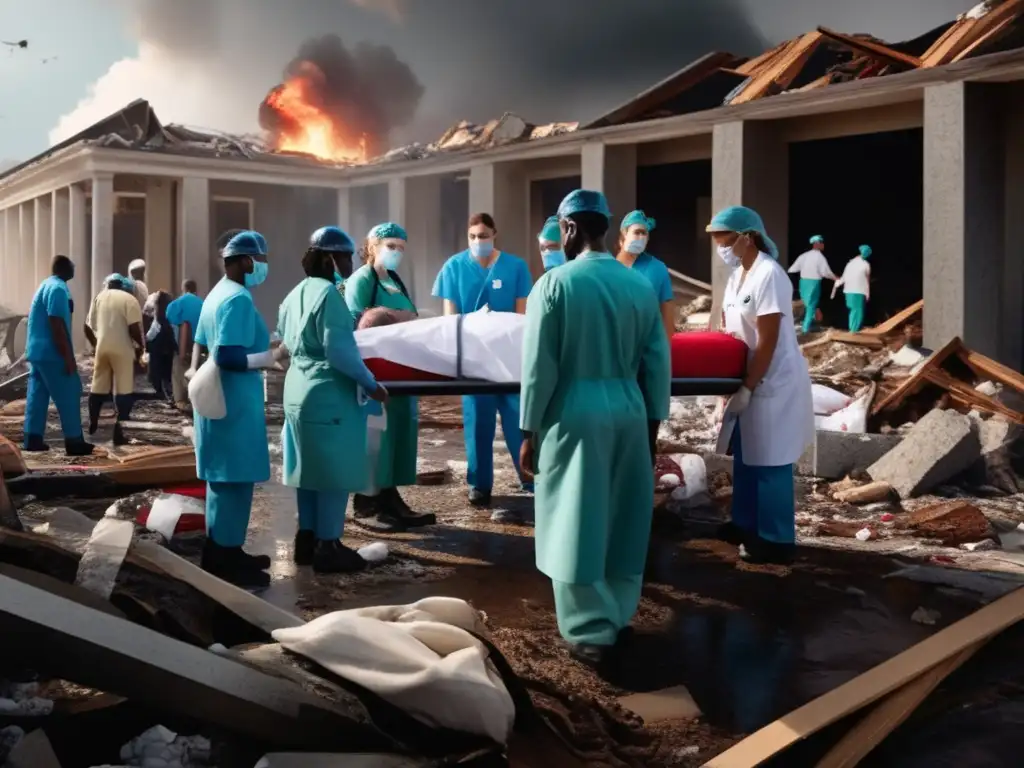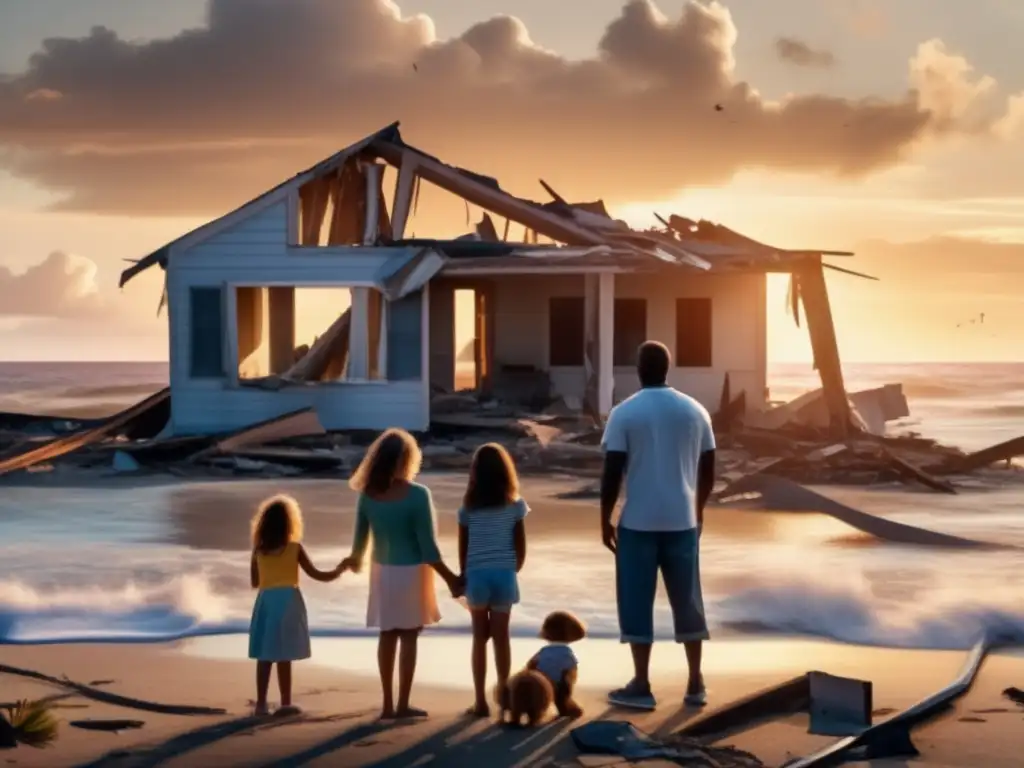Staying Healthy: Managing Health Concerns Post-Hurricane

Staying Healthy: Managing Health Concerns Post-Hurricane
Introduction
Hurricanes can cause severe damage, including loss of lives and properties. However, even after the storm, the aftermath can pose health risks to those affected. Post-hurricane health problems are not only caused by direct injuries but also due to the disruption of power supply, water, and food sources, among others. To stay healthy after a hurricane, it is essential to know the potential health concerns and how to address them.
Water Quality

Flooding impacts water distribution systems
Floodwater can carry sewage, chemicals, bacteria, and other contaminants that can affect the water quality in the region. The floodwater can also indirectly contaminate the water supply by overloading the wastewater treatment plants and making them fail. The treatment plants may release untreated wastewater into rivers and lakes that supply water to the public. Residents should adhere to boil water notices or water restrictions to prevent water-borne diseases. Water filtration systems, boiling water, and chlorination are some of the ways to make contaminated water drinkable.
Preventing waterborne illness
To prevent waterborne illnesses, it is advisable to avoid tap water of uncertain quality. Developers of new homes and infrastructure should plan to place essential infrastructure such as water utilities above projected floodwater levels. Keep in mind that no system is foolproof in the face of extreme weather events, so it's essential to have reliable methods of treating water or ensure it's safe for drinking by always boiling water before consumption.
Controlling Mold Growth
After a hurricane, mold infestations can grow in damp indoor spaces that were flooded or experienced significant water damage. Mold spores can cause respiratory problems, allergies, and other health issues. Controlling mold growth requires tackling dampness, humidity, and water damage promptly. If you have mold symptoms, consult with a healthcare professional, especially if you developed a persistent cough or severe respiratory distress.
Food Safety

Foodborne illmesses
Power outages that occur during hurricanes and other natural disasters can cause food spoilage, leading to food poisoning that is characterized by abdominal pain, fever, diarrhea, and vomiting. The Centers for Disease Control and Prevention recommends keeping refrigerators and freezers closed for as long as possible during an outage to reduce the risk of food spoilage. Once power returns, discard all perishable food items that were left unrefrigerated for more than two hours. Be sure to follow all food safety guidelines, including washing fresh produce thoroughly and cooking all meats to their recommended internal temperatures.
Proper food handling
When dealing with food during and after a hurricane, it is crucial to handle it safely. Proper food handling procedures include washing hands frequently, cleaning utensils and surfaces regularly, and storing food at the right temperature. Remember to practice good hygiene when preparing food, especially when cooked over an open flame, to avoid cross-contamination from dirty hands or contaminated water.
Mental Health

Depression and anxiety
Natural calamities like hurricanes can cause stress and emotional trauma, especially in those who might have lost loved ones or home. Mental health issues, such as depression and anxiety, can arise and persist even after the immediate disaster response efforts conclude. Affected individuals may experience irritability, sleeplessness, change in appetite, or lack of motivation. To maintain mental health, it is advisable to talk to family or friends or seek out mental health professionals for support.
Dealing with post-traumatic stress disorder (PTSD)
Post-traumatic stress disorder can occur not only in disaster survivors but also in those who are exposed to related events such as first responders, rescue workers, and medical personnel. Symptoms of PTSD include nightmares, flashbacks, anger, and avoidance. Those who are experiencing severe anxiety or depression should seek professional help from mental health experts.
Hazardous Materials

Disposing of hazardous waste
After a hurricane, hazardous waste may be generated through the cleanup process. These substances include chemicals, batteries, electronics, and household chemicals that require special disposal procedures. The Environmental Protection Agency provides guidelines for disposing of hazardous waste materials in affected areas. People should avoid attempting to dispose of these items on their own to prevent environmental contamination or personal injury.
Chemical spillage
In the case of spillage of hazardous chemicals or other pollutants during hurricanes and floods, these substances pose an immediate risk of exposure to the people in the surrounding area. The local authorities take measures to contain the contaminated area and remove the spilled substances safely. Follow the advice of public emergency services and keep informed as to when it is safe to return to the area.
Frequently Asked Questions

-
How can I ensure my water is safe to drink?
Water filtration systems, boiling water, and chlorination are some of the ways to make contaminated water drinkable.
-
What precautions should I take when handling food?
Proper food handling procedures include washing hands frequently, cleaning utensils and surfaces regularly, and storing food at the right temperature.
-
What should I do if I am experiencing mental health issues post-hurricane?
It is advisable to talk to family or friends or seek out mental health professionals for support.
-
How can I dispose of hazardous waste safely?
The Environmental Protection Agency provides guidelines for disposing of hazardous waste materials in affected areas. People should avoid attempting to dispose of these items on their own to prevent environmental contamination or personal injury.
-
What should I do if there is a chemical spillage in my area?
Follow the advice of public emergency services and keep informed as to when it is safe to return to the area.
Conclusion
Hurricanes can cause significant challenges, even after the storm has passed. To stay healthy and safe, it is essential to be aware of the potential health concerns that could arise and know how to address them. This includes ensuring water quality, practicing proper food handling, and attending to mental and physical health. By taking the necessary precautions, individuals living in hurricane-prone areas can reduce their risk of exposure to hazards, keeping themselves and their families safe.
Remember to seek professional help whenever necessary, and do not hesitate to contact emergency services if you encounter any dangerous materials or situations.
Additional Resources

- CDC: Hurricane Preparedness and Response
- FDA: Food and Water Safety During Power Outages and Floods
- EPA: Hurricanes
 Salvaging Your Belongings After A Hurricane
Salvaging Your Belongings After A Hurricane When You Can't Go Back: Relocating After A Hurricane
When You Can't Go Back: Relocating After A Hurricane Rebuilding Stronger: Creating A More Resilient Home After A Hurricane
Rebuilding Stronger: Creating A More Resilient Home After A HurricaneIf you want to discover more articles similar to Staying Healthy: Managing Health Concerns Post-Hurricane, you can visit the Hurricane recovery: category.
Leave a Reply

Articulos relacionados: